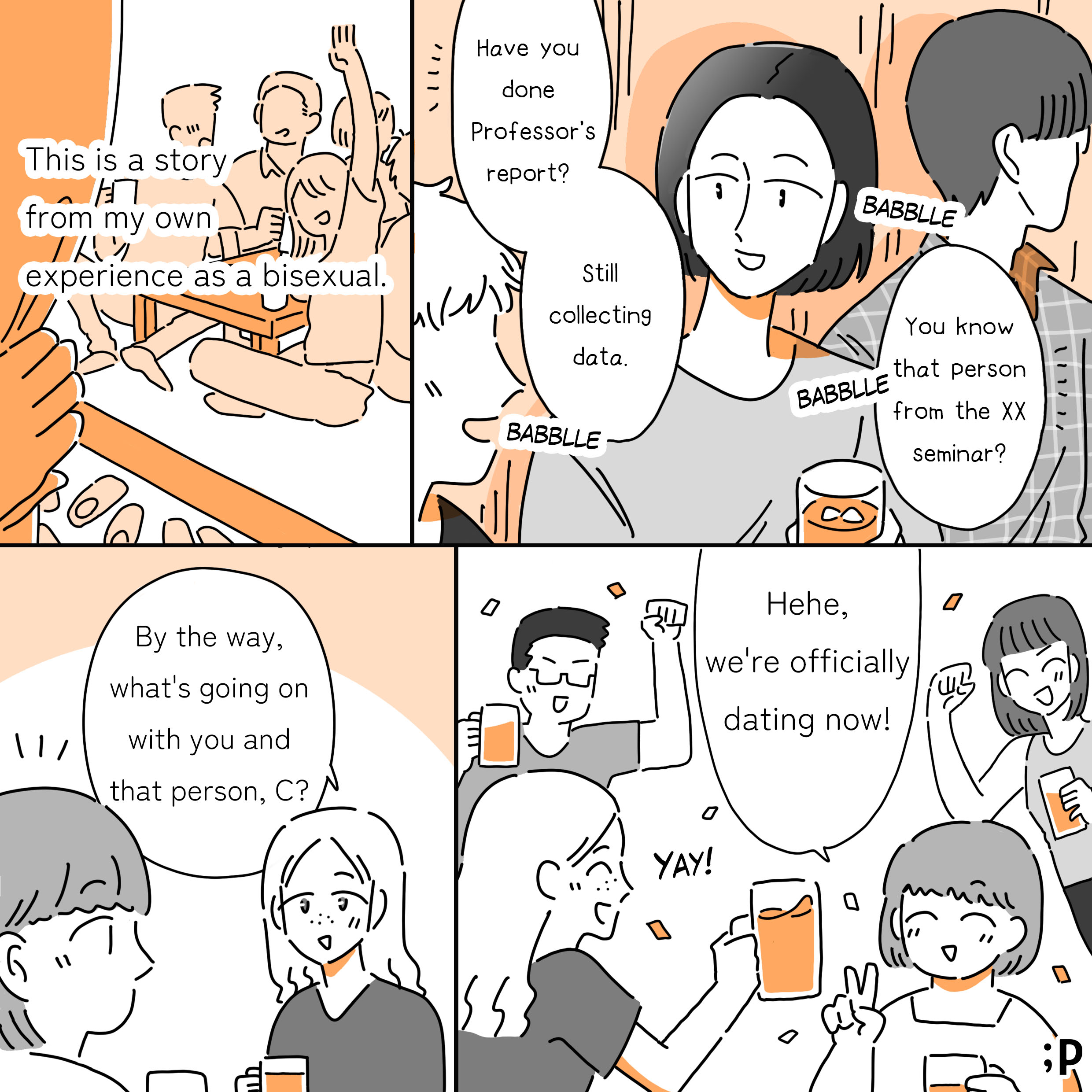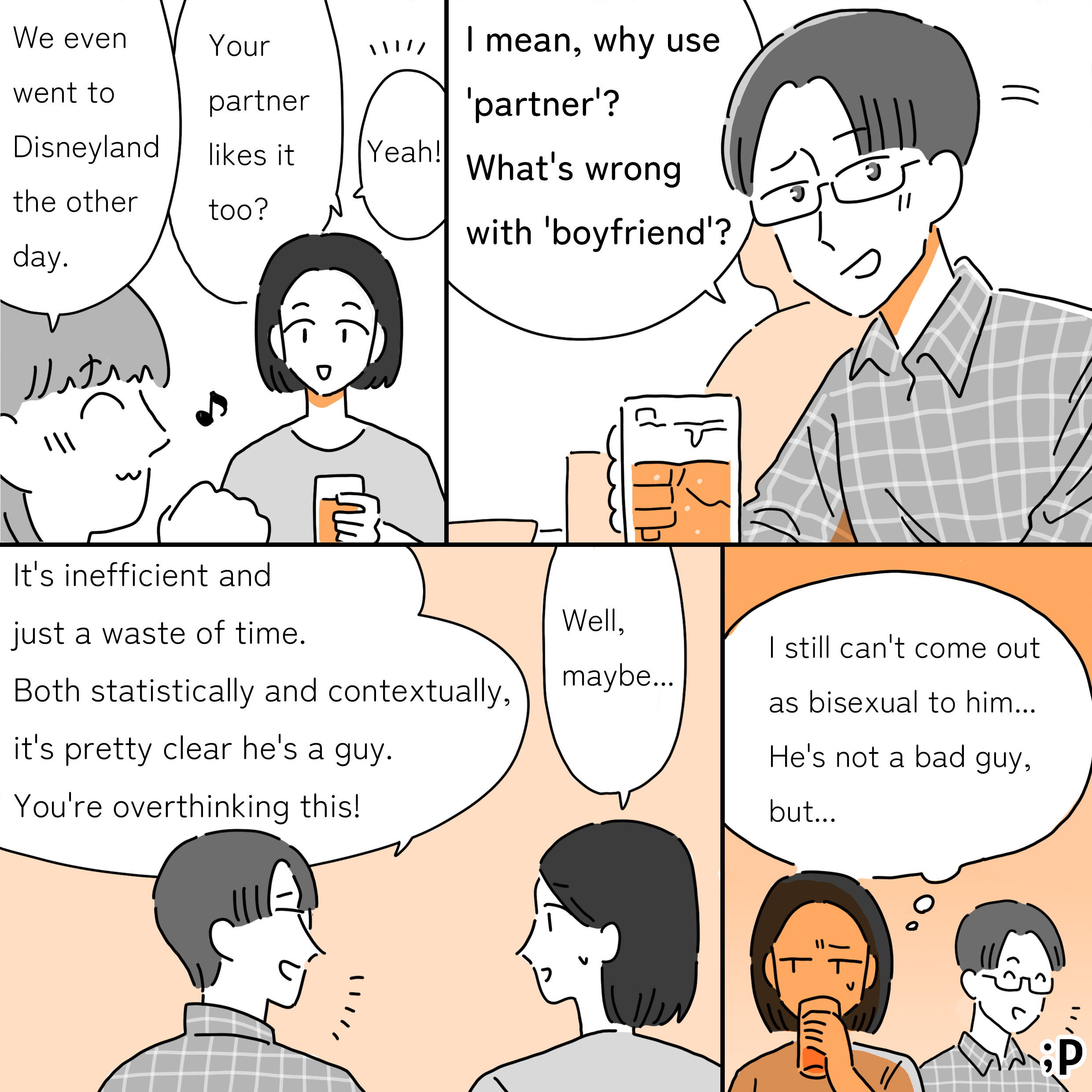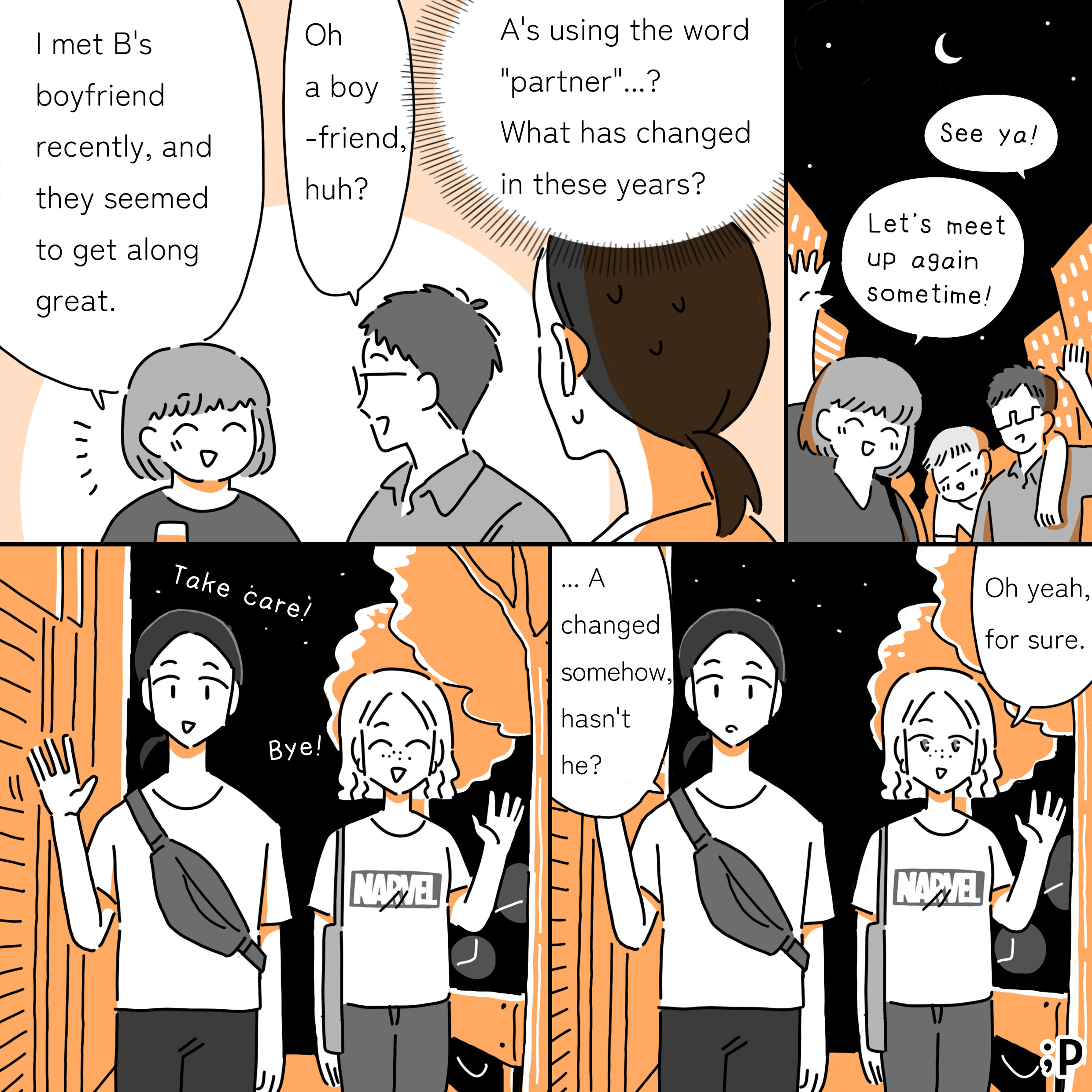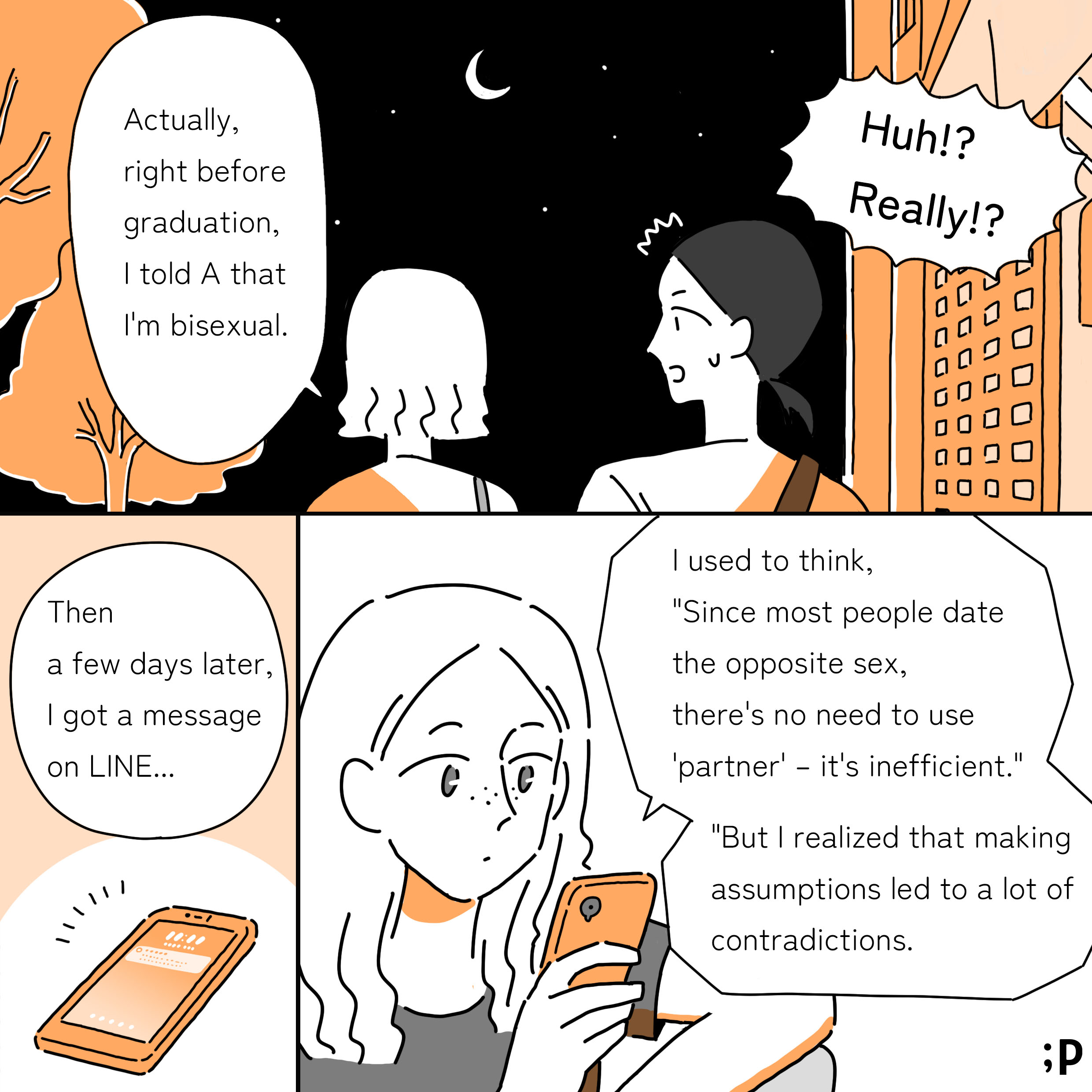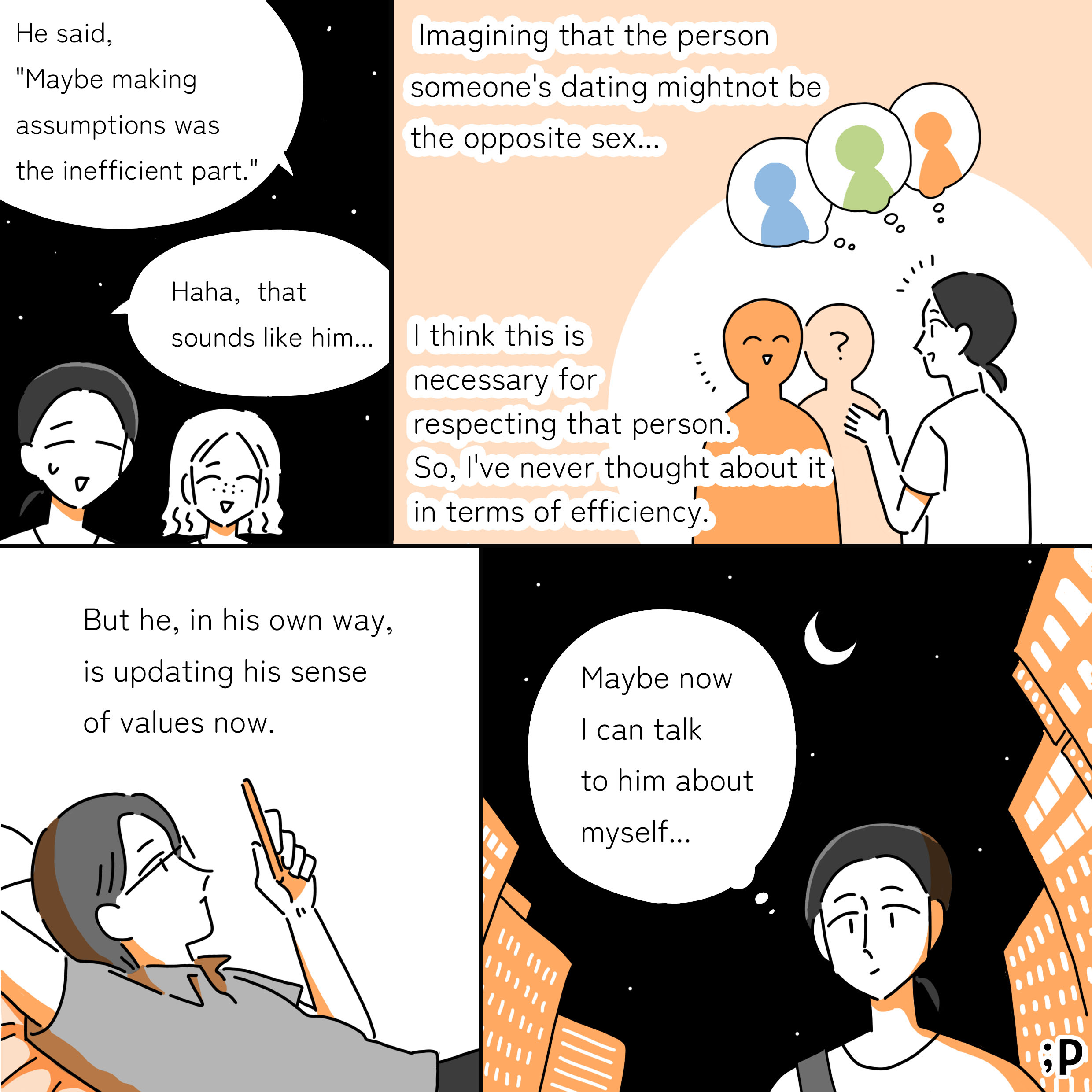【Manga】Do We Really Need to Use “Partner”?
When it comes to referring to couples or married couples, terms like “boyfriend/girlfriend,” “husband/wife,” have traditionally been commonly used.
However, in recent years, there seems to be an increase in using the term “partner” as a neutral way that doesn’t specify the gender of the person.
You might also have experienced using or hearing the word “partner” in your daily life.
Some people might find it “annoying” or “too much” to use words that intentionally avoid specifying the other person’s gender.
In this story, we will introduce the episode of A, who had doubts about whether it’s necessary to use the term “partner.”
Heterosexuality Is Not “the Norm”
Have you ever found it “troublesome” or “inefficient” to use the term “partner”?
But behind the “troublesome” and “inefficient,” there are people who feel they are being “erased” every day.
As seen in the manga, assuming from the start that someone’s partner is of the opposite gender and using terms like “girlfriend” or “boyfriend” is an act of presuming the other person’s heterosexuality.
Using neutral terms like “partner” is a way to show respect for the other person’s sexuality without assuming heterosexuality as the default.
Imagining that “the person they’re dating might not be of the opposite gender” is something each person can do, and it could contribute to creating a more inclusive space for non-heterosexual individuals.
Problematic Terms for Partners: What Do You Want to Be Called?
Japanese offers a variety of expressions for referring to a partner, but have you ever thought about how you’d like to be addressed?
Among the names that you may have casually used, you might find some words that leave you feeling uneasy when you contemplate their meaning.
Terms to address wives, such as “嫁” (yome), “奥さん” (okusan), or “家内” (kanai) are already less commonly used, but they carry nuances such as “the person who stays inside the home and does household chores” or “the person who serves the man.”
Regarding names for husbands, “ご主人” (goshujin) and “旦那さん” (dannasan) are frequently used. However, they imply a master-servant relationship and are deeply rooted in the traditional patriarchal family structure where the man is the head.
While some people may use these terms with the intention of showing respect towards their partner’s family or simply as verbal conventions, those on the receiving end of these labels might still feel discomfort even if they don’t express it openly.
When it comes to how spouses address each other, using names or nicknames, or gender-specific but not discriminatory terms like “妻” (tsuma) or “夫” (otto), can be more appropriate.
In a 2017 online survey, it was revealed that among spouses, women expressed a preference to be called ‘妻’ (tsuma) the most, making up the largest portion at 23 percent. However, the same survey also found that the term ‘嫁’ (yome), which is less favorable, was the most frequently used. This indicates a gap between the name individuals want to be called and the name they are actually addressed with. There is no one correct way to address your partner, but using the name the person prefers is beneficial for the relationship.
Furthermore, terms like ‘彼女/彼氏’ (girlfriend/boyfriend) or ‘妻/夫’ (wife/husband) limit the referred person’s gender to either male or female. You cannot deduce a person’s gender identity from their biological sex, and being in a heterosexual marriage doesn’t necessarily dictate one’s gender identity.
In this regard, the term ‘パートナー’ (partner) is gender-neutral and carries the least discriminatory meaning, making it the least likely to hurt someone’s feelings. If the term partner doesn’t sit well with you, alternatives like ‘連れ合い’ (tsureai: life partner) or more formal words such as ‘配偶者’ (haigusya: spouse) or ‘伴侶’ (hanryo: companion) can be used.
Previously, Palettalk shared a manga story about addressing one’s partner as ‘伴侶’ (hanryo: life partner) or ‘ご伴侶さま'(gohanryosama: a polite way of saying ‘hanryo’).
Simply addressing them by their name, instead of saying “someone’s partner”, is a great approach too!
Conclusion
In this discussion, we explored the term “partner” in comparison to other forms of addressing one’s significant other.
While the use of “partner” has gradually become more prevalent, it still appears to be in the minority when compared to other labels. As more people realize that the everyday terms they’ve been using might have been based on assumptions of heterosexuality or a binary view of gender, it’s hoped that in the future, we may see the emergence of more inclusive terms that replace “妻/夫” (wife/husband) and make room for everyone.
(Translation: Jennifer Martin)


